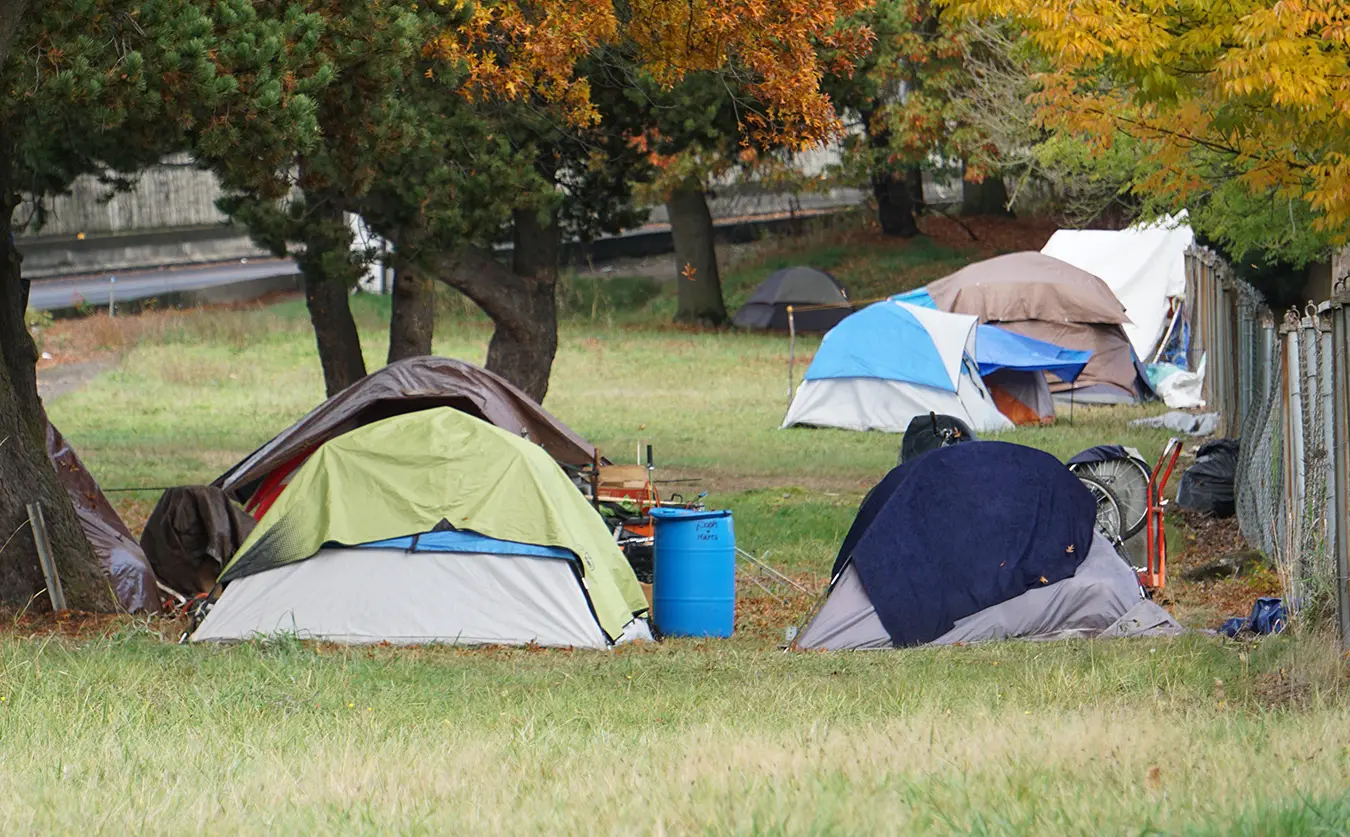
June 4, 2024
All people should have the right to a safe, stable home for themselves and their families. They should be protected from housing discrimination based on race, ethnicity, criminal background, or immigration status. Any sort of housing discrimination can lead to housing instability and homelessness.
But within the city limits of Grants Pass, Oregon, local ordinances ban people experiencing homelessness from “camping” outdoors using a blanket, pillow, or cardboard box. The law punishes people forced to seek shelter from the elements, despite the city having few available shelter beds.
Recently, three homeless individuals filed a complaint against the city, calling its anti-homeless laws unconstitutional. In Johnson v. Grants Pass, the Supreme Court will determine if the city is violating the Constitution’s Eighth Amendment protection against cruel and unusual punishment when it arrests, fines, and even imprisons people without homes for sleeping outside.
Several organizations have submitted amicus briefs in support of the unhoused communities. The Shriver Center on Poverty Law, in partnership with the Formerly Incarcerated People and Families Movement and National Consumer Law Center, filed an amicus brief that outlines how targeting people with criminal records only worsens the housing crisis. The brief was authored by the Shriver Center, Legal Action Chicago, and our pro bono partners at Goldberg Kohn.
Oral arguments took place before the Supreme Court on April 22. A decision is expected this month. Public sentiment around the case is mixed. LaTanya Jackson Wilson, Shriver Center vice president of advocacy, noted, “Grants Pass categorized this as an anti-camping ordinance, which is disingenuous. The wording is very intentional. By outlawing the use of pillows, blankets, and cardboard boxes, the city is punishing the actions of people trying to survive while homeless.”
People experiencing homelessness are especially likely to face contact with the criminal legal system. Shriver Center’s amicus brief states that formerly incarcerated people are almost 10 times more likely to be homeless than the general public. People with criminal records get caught in a vicious cycle of homelessness and incarceration. In Ocala, Florida, for example, several homeless people were barred from a shelter for one year, ironically, after receiving trespass convictions for violating Ocala’s anti-sleeping ordinance.
After incarceration, many are released back into homelessness, with a criminal record making it harder to find work or stable housing. While on the streets, they face being arrested again simply for being homeless. Sometimes being arrested for homelessness constitutes a parole or probation violation, which can lead to significant prison time.
Our brief asserts, “It is especially offensive for the government to punish someone for homelessness after enacting policies to exclude that person from housing.” Policies that continue to wage a war on poverty are anti-people. No person on any side of the political spectrum can argue that society is better if unemployment and homelessness persist. But housing subsidies remain underfunded. Only a quarter of qualified households receive such assistance.
In some instances, people have limited access to housing not because of an inability to pay, but barriers solely caused by criminal records, source of income discrimination, or crime free nuisance ordinances, which force landlords to evict people for having criminal records.
“We urge people to continue to push their legislators and advocate for the issue,” Jackson Wilson said. “As we look forward to the court’s decision in June, we remain hopeful that it will prompt continued conversations about how we’re supporting vulnerable communities.” These include legislation for access to legal representation and policies that lessen the collateral consequences of existing while homeless.
The Supreme Court’s decision will have nationwide implications for housing policies and set the precedent for how we protect people nationwide against suffering while homeless. Policies and laws that create and perpetuate poverty and racial inequity are written into the fabric of our nation. Anti-sleeping ordinances are not a solution to the problem. Homelessness can be fixed by ensuring people get — and keep — affordable housing.

Shelter is not only a basic human need, it is also critical to people’s ability to pursue and attain economic stability.
All people should have the right to a safe, stable home to build better futures for themselves and their families.